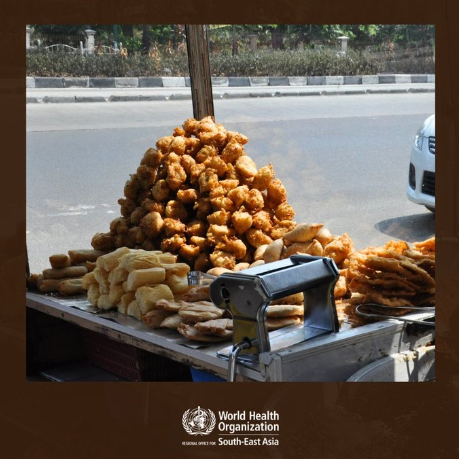Nepal joins the fight against trans-fatty acids: a landmark step toward a healthier South-East Asia
In February 2024, Nepal took a significant step toward improving public health by introducing legislation aimed at restricting industrially produced trans-fatty acids (iTFA) in the food supply. This move is part of a broader effort to address cardiovascular diseases and save lives.
With this new legislation, nearly 80% of the population in the WHO South-East Asia Region—about 1.6 billion people—will now be potentially protected from the harmful effects of trans-fat. Nepal’s legislation adds 30 million people to the SEAHEARTS initiative, which aims to protect two billion people from the harmful effect of trans-fatty acids by 2025 through best practices or complementary policy measures of WHO REPLACE.
These harmful fats are often found in processed foods such as fried items, baked goods, and ready meals. They offer no known health benefits and are frequently present in products high in sugar, fat, and salt.
WHO has been urging countries in the region to adopt best-practice policies, strengthen monitoring, and enhance surveillance to eliminate iTFA. Nepal’s new legislation aligns with this guidance, marking a critical advancement in public health protection.
Globally, trans-fat intake is responsible for approximately 540,000 deaths annually, with high consumption increasing the risk of heart attacks and other cardiovascular issues. In 2024, Thailand was among the first five countries to receive WHO certification for its progress in eliminating industrially produced trans-fatty acids, showcasing the region's leadership in the fight against harmful fats. With Nepal joining these efforts, the region is moving closer to achieving its goal of a trans-fat-free future.
More information - Nepal restricts trans-fatty acids in food

